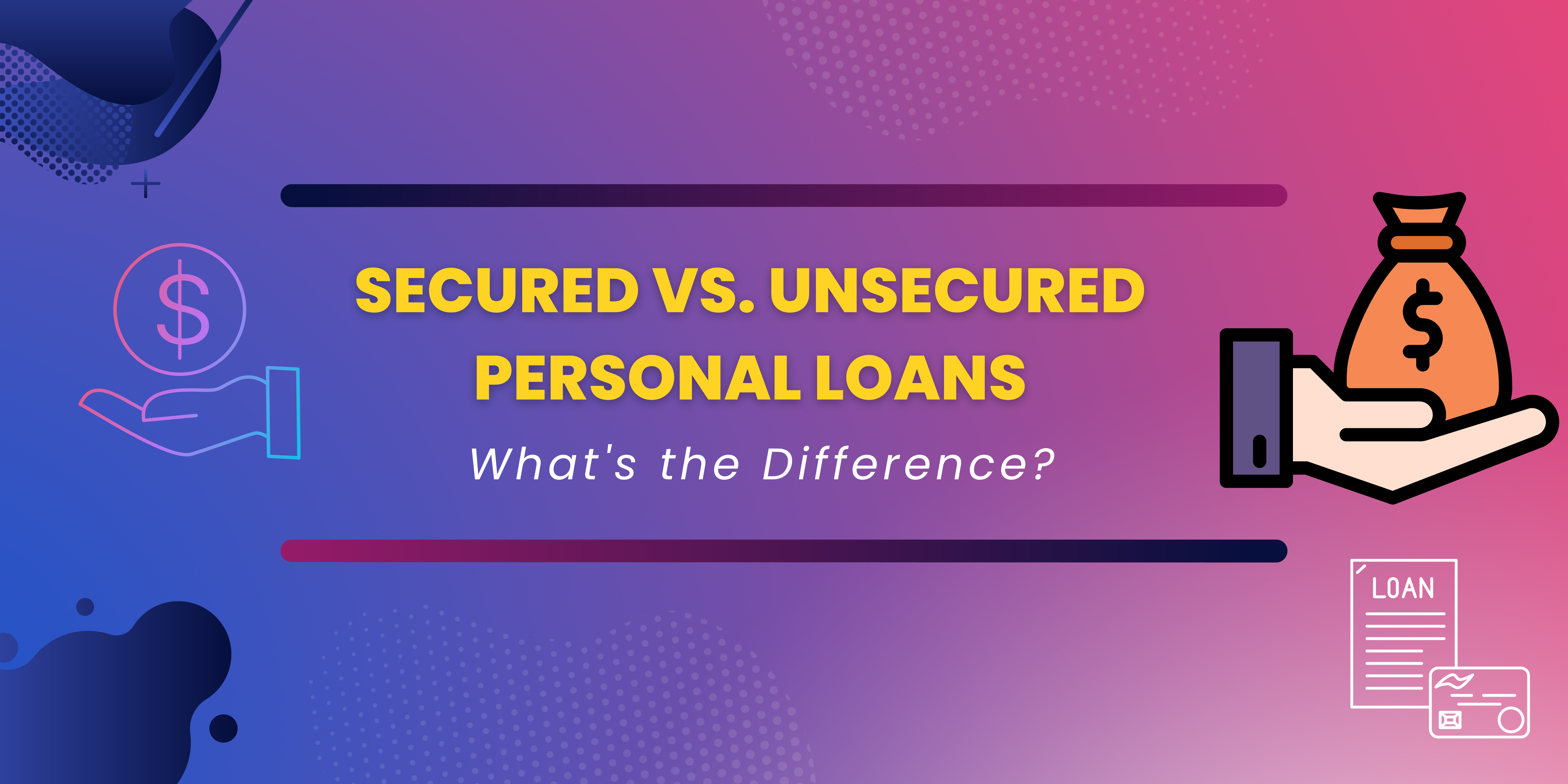When considering a personal loan, one of the first decisions you’ll need is whether to get a secured vs unsecured loan. The main difference is that secured loans require collateral, while unsecured loans do not.
Collateral is something you own of value that the lender can seize if you default on the loan. This could be your car, your home, or another asset. Secured loans are typically easier to qualify for and have lower interest rates than unsecured ones because the lender takes less risk.
Unsecured loans do not require collateral, but they are more difficult to qualify for and typically have higher interest rates. This is because the lender is taking on more risk by lending you money without any collateral to back it up.
Here is a more detailed comparison of secured and unsecured personal loans:
| Feature | Secured Loan | Unsecured Loan |
|---|---|---|
| Collateral | Required | Not required |
| Interest rates | Typically lower | Typically higher |
| Credit requirements | Easier to qualify for | More difficult to qualify for |
| Examples | Auto loans, mortgages, home equity loans | Personal loans, credit cards |
Secured vs Unsecured Loan – Which type of loan is right for you?
The best type of loan for you will depend on your individual circumstances and needs. A secured loan may be a good option if you have good credit and can afford collateral. You’ll likely be able to qualify for a lower interest rate and more favorable terms.
However, if you don’t have good credit or don’t want to put up collateral, an unsecured loan may be your only option. Remember that you’ll likely pay a higher interest rate and have shorter repayment terms.
Also, Read – Debt Consolidation Loan: A Path to Financial Relief
Here are some things to consider when choosing between a secured vs unsecured personal loan:
- Your credit score: If you have good credit, you’ll likely be able to qualify for a lower interest rate on an unsecured loan. However, if you have fair or bad credit, you may need to consider a secured loan to get approved.
- Your debt-to-income ratio: Your debt-to-income ratio (DTI) is the amount of monthly debt payments you have divided by your monthly income. If you have a high DTI, qualifying for an unsecured loan may be difficult. In this case, a secured loan may be a better option.
- How much money you need: Secured loans are typically available for larger amounts of money than unsecured loans. A secured loan may be your only option if you need to borrow a large amount of money.
- Whether you can afford to put up collateral: If you’re considering a secured loan, make sure you can afford to put up collateral you’re willing to lose if you default.
Secured vs Unsecured Loan – How to get a personal loan?
Whether you’re considering a secured or unsecured personal loan, there are a few things you can do to improve your chances of getting approved and getting a good interest rate:
- Shop around and compare offers from multiple lenders: Don’t just apply for the first loan you find. Take the time to shop around and compare offers from multiple lenders to find the best deal.
- Get pre-approved: Getting pre-approved for a loan before you start shopping will give you an idea of how much money you can borrow and your interest rate. This can also make you more attractive to lenders.
- Have a good credit score: A good credit score will help you qualify for a loan and get a lower interest rate. If you have a fair or bad credit score, you may want to consider improving your credit before applying for a loan.
Conclusion
Secured vs unsecured personal loans both have their own advantages and disadvantages. It’s important to weigh the pros and cons of each type of loan before deciding which one is right for you.
A secured loan may be a good option if you have good credit and can afford collateral. You’ll likely be able to qualify for a lower interest rate and more favorable terms.
However, if you don’t have good credit or don’t want to put up collateral, an unsecured loan may be your only option. Remember that you’ll likely pay a higher interest rate and have shorter repayment terms.
No matter which type of loan you choose, be sure to shop around and compare offers from multiple lenders to find the best deal.

